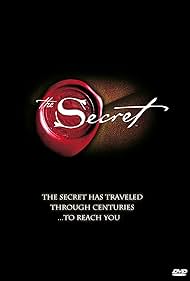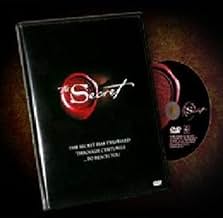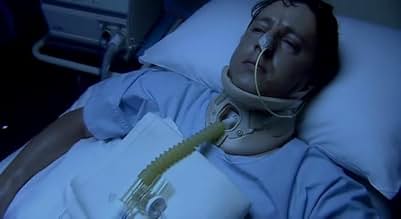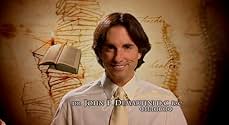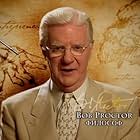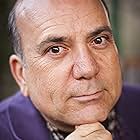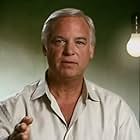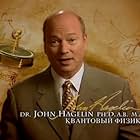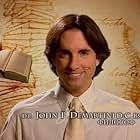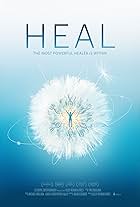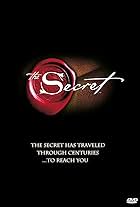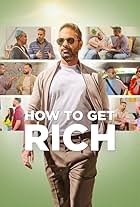Interviews with self-proclaimed authors, philosophers and scientists, with an in-depth discussion of visualizing your goals. The audience is shown how they can learn and use 'The Secret' in ... Read allInterviews with self-proclaimed authors, philosophers and scientists, with an in-depth discussion of visualizing your goals. The audience is shown how they can learn and use 'The Secret' in their everyday lives.Interviews with self-proclaimed authors, philosophers and scientists, with an in-depth discussion of visualizing your goals. The audience is shown how they can learn and use 'The Secret' in their everyday lives.
Joe Vitale
- Self - Metaphysician
- (as Dr. Joe Vitale MSC.D.)
Michael Beckwith
- Self - Visionary
- (as Rev. Dr. Michael Beckwith D.D.)
John Hagelin
- Self - Quantum Physicist
- (as Dr. John Hagelin Ph.D A.B. M.A.)
John Demartini
- Self - Philosopher
- (as Dr. John F. Demartini D.C. Bsc)
Fred Alan Wolf
- Self - Quantum Physicist
- (as Fred Alan Wolf Ph.D.)
Denis Waitley
- Self - Psychologist
- (as Dr. Denis Waitley Ph. D)
Marci Shimoff
- Self - Author
- (as Marci Shimoff MBA)
Ben Johnson
- Self - Physician
- (as Dr. Ben Johnson M.D. N.M.D. D.O.)
- Director
- Writer
- All cast & crew
- Production, box office & more at IMDbPro
Featured reviews
I'm glad I saw the movie *before* I read all these comments.
I greatly appreciate the words of GreySphinx, japonaliya, alunde-1, robschmidt, and the like. I have read comments of the "haters" very closely, and their tone is so acerbic that leads me to ask them the following: who hurt you? The irony is that I don't have a problem with what they said, it doesn't bother me they reject the message of the movie - however, I do believe their critical words make the best case for the premise of the movie.
I consider myself an intelligent man with better than average critical thinking skills (and I know my employer does as well); and I do not believe that this movie insulted my intelligence. But if you believe that this movie was suppose to tell you *everything* you need to know about how to transform their life in 90 minutes, then I completely understand the source of your upset. But consider the following: this movie is only the "tip of the iceberg" (I intentionally chose that that metaphor because the tip of the iceberg only shows one about 10% of itself above the surface I'll leave it to you to figure out how much of this philosophy is left for the interested party to discover ;-) ). Hence I respectfully disagree with vuduzombie I believe one of the points of this movie is to inspire intellectual evolution.
I also respectfully disagree with OnlyPassingBy's assessment that this movie promotes "victim-blaming." I believe it's quite the opposite. I believe that the movie is asking the viewer to consider the radical concept that one is 100% responsible for anything that happens in their life. So if we are 100% responsible, then by definition we cannot blame anyone else. And from there we have the opportunity to realize that we are solely responsible to change whatever it is we want, if for no other reason than the fact that we are not wasting any of our precious time/energy/effort blaming someone else, not even 1%. (Even though I wholly believe in the principle of "100% responsibility," I wish I could say that I were talented enough to accomplish it all the time, but I do stumble and find myself "partially" blaming someone else. At least now I realize when I'm stumbling and that gives me the opportunity to right myself.)
What I find interested about hazzard_hotel's beer-theory is that he is so close to "getting" the Law of Attraction. Unfortunately I believe he is confusing the Law of Attraction with the Magic of Manifestation. Consider that the point of the Law of Attraction is that before you can have something, you must want it first. So yes, if you want a cold beer, you "imagine" having a cold beer (and where does one "imagine" but in their mind). And then you do what it takes to get yourself a cold beer go to a bar, go the fridge, go to the store, whatever it takes (even asking someone to get it for you) and voilà, you've got yourself the cold beer that you wanted in other words, "thoughts become things." And yes, if you have ever listened to Bill Gates talk about his life before Microsoft, he has said "I imagined myself being rich." But then he follows up with "And this is what I did to make that happen." (Consider that JFK's "positive thinking" in fact did put a rocket on the moon and that this weekend there are 32 men, who as boys, imagined themselves as NFL starting quarterbacks. Of course there was a lot of hard work between the initial desire and the final achievement.)
So I get how to some this movie can be seen as a tease. The movie does not tell you in precise words that the road to what you imagine is paved with action. Ultimately it's up to you to do and realize the remaining 90% of the iceberg but that's just "common sense," right? Actually, no, this level of sense is not common if it were, then Dr.Phil would be out of a job. Even the smartest of us need help and occasional reminders (especially me).
I believe this movie is intended to be provocative, and the "haters" demonstrate that the movie meets its intent. If one thinks that this movie will be a one shot panacea, then you're in for a big disappointment. But if one is ready to do the rigorous work and take personal responsibility to do what it takes to transform their lives, then by all means see this movie.
I greatly appreciate the words of GreySphinx, japonaliya, alunde-1, robschmidt, and the like. I have read comments of the "haters" very closely, and their tone is so acerbic that leads me to ask them the following: who hurt you? The irony is that I don't have a problem with what they said, it doesn't bother me they reject the message of the movie - however, I do believe their critical words make the best case for the premise of the movie.
I consider myself an intelligent man with better than average critical thinking skills (and I know my employer does as well); and I do not believe that this movie insulted my intelligence. But if you believe that this movie was suppose to tell you *everything* you need to know about how to transform their life in 90 minutes, then I completely understand the source of your upset. But consider the following: this movie is only the "tip of the iceberg" (I intentionally chose that that metaphor because the tip of the iceberg only shows one about 10% of itself above the surface I'll leave it to you to figure out how much of this philosophy is left for the interested party to discover ;-) ). Hence I respectfully disagree with vuduzombie I believe one of the points of this movie is to inspire intellectual evolution.
I also respectfully disagree with OnlyPassingBy's assessment that this movie promotes "victim-blaming." I believe it's quite the opposite. I believe that the movie is asking the viewer to consider the radical concept that one is 100% responsible for anything that happens in their life. So if we are 100% responsible, then by definition we cannot blame anyone else. And from there we have the opportunity to realize that we are solely responsible to change whatever it is we want, if for no other reason than the fact that we are not wasting any of our precious time/energy/effort blaming someone else, not even 1%. (Even though I wholly believe in the principle of "100% responsibility," I wish I could say that I were talented enough to accomplish it all the time, but I do stumble and find myself "partially" blaming someone else. At least now I realize when I'm stumbling and that gives me the opportunity to right myself.)
What I find interested about hazzard_hotel's beer-theory is that he is so close to "getting" the Law of Attraction. Unfortunately I believe he is confusing the Law of Attraction with the Magic of Manifestation. Consider that the point of the Law of Attraction is that before you can have something, you must want it first. So yes, if you want a cold beer, you "imagine" having a cold beer (and where does one "imagine" but in their mind). And then you do what it takes to get yourself a cold beer go to a bar, go the fridge, go to the store, whatever it takes (even asking someone to get it for you) and voilà, you've got yourself the cold beer that you wanted in other words, "thoughts become things." And yes, if you have ever listened to Bill Gates talk about his life before Microsoft, he has said "I imagined myself being rich." But then he follows up with "And this is what I did to make that happen." (Consider that JFK's "positive thinking" in fact did put a rocket on the moon and that this weekend there are 32 men, who as boys, imagined themselves as NFL starting quarterbacks. Of course there was a lot of hard work between the initial desire and the final achievement.)
So I get how to some this movie can be seen as a tease. The movie does not tell you in precise words that the road to what you imagine is paved with action. Ultimately it's up to you to do and realize the remaining 90% of the iceberg but that's just "common sense," right? Actually, no, this level of sense is not common if it were, then Dr.Phil would be out of a job. Even the smartest of us need help and occasional reminders (especially me).
I believe this movie is intended to be provocative, and the "haters" demonstrate that the movie meets its intent. If one thinks that this movie will be a one shot panacea, then you're in for a big disappointment. But if one is ready to do the rigorous work and take personal responsibility to do what it takes to transform their lives, then by all means see this movie.
I am so glad to know that all those soldiers returning home from Iraq are going to be able to regrow their limbs and reverse their post-traumatic stress syndromes just by thinking positively! Yay!
Starving child in Africa? Hey kiddo, turn that frown upside down and it's Manna from Heaven time!
Hey Katrina victims - those must have been some pretty dark thoughts you were putting out. That's how hurricanes form, you know, from the whirlwinds of negative-thinking energy!
New Age rhymes with Sewage for a reason.
This is basically "What the bleep do we know" redux. I was always astonished to see the book version of this film in the #1 spot at Amazon for so many weeks. But the popularity of such crap helps mitigate my astonishment at the fact that Bush won a re-election (He must be the world's mostest positivey thinker!) and that people believe that creationism can be taught as science.
Thank you japonaliya and GreySphinx. I love your reviews but I do not have the patience to deal critically with pure crap and the people who eat it. I hope the Mothership comes and takes all these "believers" away soon.
Starving child in Africa? Hey kiddo, turn that frown upside down and it's Manna from Heaven time!
Hey Katrina victims - those must have been some pretty dark thoughts you were putting out. That's how hurricanes form, you know, from the whirlwinds of negative-thinking energy!
New Age rhymes with Sewage for a reason.
This is basically "What the bleep do we know" redux. I was always astonished to see the book version of this film in the #1 spot at Amazon for so many weeks. But the popularity of such crap helps mitigate my astonishment at the fact that Bush won a re-election (He must be the world's mostest positivey thinker!) and that people believe that creationism can be taught as science.
Thank you japonaliya and GreySphinx. I love your reviews but I do not have the patience to deal critically with pure crap and the people who eat it. I hope the Mothership comes and takes all these "believers" away soon.
My personal favourite piece of self-help/New Age literature is that trusty old warhorse from the late 60s/early 70s called "Zen & The Art Of Motorcycle Maintenance". The main theme that I found so inspirational in "Zen..." is the idea that goodness derives from the equal combination of romantic, surface quality and classical, underlying quality. In other words, the best things in life are those that are nice on the surface but also have real depth and substance.
It strikes me that "The Secret" scores adequately (if you like that sort of syrupy aesthetic) on the romantic, surface side of things...but falls to pieces totally if you scratch beneath the surface and analyse its underlying substance, or lack of.
I first heard of "The Secret" while having a chat with someone who said I was the most positive person they had ever met, and I MUST have studied "The Secret" to make my attitude so positive. I sheepishly told them I hadn't, in fact I had never heard of "The Secret". So, with my ego suitably inflated, I thought I'd check out this inspirational movie to see whether its philosophy indeed matched my own.
No, it doesn't. Yes, positive visualisation is a good way of starting a venture. In fact, it's a fundamental of all business strategies - ask yourself what your aims are, imagine your desired outcomes and then find a means of achieving them. But it's the finding a means of achieving them that is the stumbling block, missed out entirely by "The Secret", and the cause of the eventual fallout between me and my former admirer! You see, the person who told me how positive I was totally missed the point that real positivity comes from balancing "the secret" of visualising good things with a much more pragmatic approach to analysing the underlying nature of things. You need faith in order to be able to believe you can solve a problem, agreed. But you also need knowledge and logic. The road to hell is paved with good intentions...
"The Secret" is tailor-made for those type of people who don't like to analyse or think logically about solving problems. It encourages people to believe that success is entirely down to thinking good thoughts (does this remind anyone else of "The Twilight Zone" episode "It's A Good Life"?).
The point was brought home to me when my former admirer told me how "The Secret" gave her the idea that one can drive all the way across America in the fog with no headlights, just by the power of positive thought. That may, feasibly, be true, assuming you don't drive off a cliff or headlong into an oncoming truck. But why would you want to? And surely, even though you MIGHT be able to drive around in the dark, surely it'd be a quicker, more enjoyable and safer journey if you spent some time fixing your headlights first! That in a nutshell is the problem with "The Secret". It encourages people not to bother with science, critical thinking, rationality, understanding underlying substance, or the real nature of logical reality. To be fair, any video which was overly atheistic and cynical would be equally narrow-minded in my opinion eg some of the Richard Dawkins stuff.
If they could update "Zen & The Art Of Motorcycle Maintenance" for the new millennium - in my line of work it is Zen & The Art of Desktop I.T. Support, lol - then that would be a far superior movie and message to "The Secret". Yes it's good to have faith and positivity, but without underlying logic and reason, then it is worthless.
A couple of final notes...in the I.T. industry, disaster recovery and business continuity are essential, ie visualising worst case scenarios and finding preventative solutions. Likewise for the police, the medical profession, firemen and anyone else who has to be prepared for bad things happening in order to act rapidly and minimise harm during a crisis. Visualising the worst thing you can imagine happening is often an effective way of putting a system in place to ensure it never does happen for real. This is the exact opposite to "The Secret"!
But the worst thing of all about "The Secret" is that, of all the philosophies and religions of the world, the one it seems to have most in common with is Satanism.
It strikes me that "The Secret" scores adequately (if you like that sort of syrupy aesthetic) on the romantic, surface side of things...but falls to pieces totally if you scratch beneath the surface and analyse its underlying substance, or lack of.
I first heard of "The Secret" while having a chat with someone who said I was the most positive person they had ever met, and I MUST have studied "The Secret" to make my attitude so positive. I sheepishly told them I hadn't, in fact I had never heard of "The Secret". So, with my ego suitably inflated, I thought I'd check out this inspirational movie to see whether its philosophy indeed matched my own.
No, it doesn't. Yes, positive visualisation is a good way of starting a venture. In fact, it's a fundamental of all business strategies - ask yourself what your aims are, imagine your desired outcomes and then find a means of achieving them. But it's the finding a means of achieving them that is the stumbling block, missed out entirely by "The Secret", and the cause of the eventual fallout between me and my former admirer! You see, the person who told me how positive I was totally missed the point that real positivity comes from balancing "the secret" of visualising good things with a much more pragmatic approach to analysing the underlying nature of things. You need faith in order to be able to believe you can solve a problem, agreed. But you also need knowledge and logic. The road to hell is paved with good intentions...
"The Secret" is tailor-made for those type of people who don't like to analyse or think logically about solving problems. It encourages people to believe that success is entirely down to thinking good thoughts (does this remind anyone else of "The Twilight Zone" episode "It's A Good Life"?).
The point was brought home to me when my former admirer told me how "The Secret" gave her the idea that one can drive all the way across America in the fog with no headlights, just by the power of positive thought. That may, feasibly, be true, assuming you don't drive off a cliff or headlong into an oncoming truck. But why would you want to? And surely, even though you MIGHT be able to drive around in the dark, surely it'd be a quicker, more enjoyable and safer journey if you spent some time fixing your headlights first! That in a nutshell is the problem with "The Secret". It encourages people not to bother with science, critical thinking, rationality, understanding underlying substance, or the real nature of logical reality. To be fair, any video which was overly atheistic and cynical would be equally narrow-minded in my opinion eg some of the Richard Dawkins stuff.
If they could update "Zen & The Art Of Motorcycle Maintenance" for the new millennium - in my line of work it is Zen & The Art of Desktop I.T. Support, lol - then that would be a far superior movie and message to "The Secret". Yes it's good to have faith and positivity, but without underlying logic and reason, then it is worthless.
A couple of final notes...in the I.T. industry, disaster recovery and business continuity are essential, ie visualising worst case scenarios and finding preventative solutions. Likewise for the police, the medical profession, firemen and anyone else who has to be prepared for bad things happening in order to act rapidly and minimise harm during a crisis. Visualising the worst thing you can imagine happening is often an effective way of putting a system in place to ensure it never does happen for real. This is the exact opposite to "The Secret"!
But the worst thing of all about "The Secret" is that, of all the philosophies and religions of the world, the one it seems to have most in common with is Satanism.
Reading the comments I'm surprised :D Most of the negative comments say "cannot I be a top NFL player just by visualising it?". No you cannot. If simple asking is all you can do, then no - you can not. You have to believe it. I'm not convinced in some outer world, but I do believe positive thinking brings success. I watched the movie yesterday, today is such a great day compared to 99% of last few months! I thought about "I want to make some money fast soon" and yes, suddenly i made 400 today almost out of nothing and got an offer on some future projects! But it's probably not connected to anything about the movie. What is important, that every time you think about something, you give more importance to it and your mind works much better to achieve it. It will not end a war, it will make you think how to survive the war better. It will not 100% cure bad diseases, but it will help you live better the rest of your life until you die. If you're pesimistic "oh, i got cancer, i will die, im loser, im dead", you better off shoot yourself already. YOU WILL NOT GET A 350Z ROADSTER JUST BECAUSE THE MOVIE SAYS SO! If you're passionate about cars and have a dream car, you will get it. If you don't get it, probably it's not that important for yourself - you don't really want it so much. I smiled and talked kindly to so many people today and I'm happy about it. I want to get closer with my friends. I chose different routes during lunch and suddenly met 2 good friends. Isn't happiness all that you want in your life? The movie said only once, but it must be articulated - positive attracts negative. You cannot have everything positive! If you believe in God, this sentence describes it somehow: "God always listens, but sometimes the answer is NO". As for the quality of the movie - its poor. Very poor. It starts as a story of some woman. What woman? What problem? No idea, suddenly it starts as a documentary and a Tel Sell advertisement. Just selling the movie for 1.3 hours. But it's worth it if you understand what it means. Most of the commenters don't. 9 for the worth of the movie, 4 for plot and cinematography. 7/10 total Recommended movie for everyone who is stressed in life (99% of us)
I've watched the whole documentary and these are my impressions divided into positive (+), neutral (±) and negative (-) remarks.
(+) To those who experience negative thoughts throughout every day this is a great opportunity to change their way of thinking. This documentary encourages people to change their lives in a positive way.
(+) The theory is explained in a way that's easy to comprehend. To those who are already familiar with this theory (resembling Rational Emotive Behavior Therapy) it may seem repetitive, but to newcomers this might be necessary.
(±) In my opinion, there are claims being made during the documentary that aren't backed up with solid proof. They do tell some remarkable stories, but it doesn't really convince me for some reason.
(±) Several times the interviewees give certain numbers and facts as proof of a statement they're making, but the methods of researching those facts aren't being explained. You just have to believe that what they say is true.
(-) At start The Secret gives the impression that you're going to watch a movie about a woman who will discover "The Secret", how and why it has been kept as a secret for so long, exposing a conspiracy and in the end revealing the secret to the viewer... But it's none of that. It's basically just a documentary.
(-) It's overdone. It feels like I'm watching Tel Sell, and the talking just goes on and on... (But again, to newcomers and people who need a periodical pep talk this might be just the right thing.)
(-) At a certain point, the documentary talks about a "constant state of joy" (at least twice)! The makers of this movie fail to mention that there is nothing wrong with grief and such feelings. If a family member or a good friend of yours dies, then why should you force yourself into a constant state of joy? It's alright to cry, be angry or whatever, as long as you don't exaggerate it, stay in control of yourself and act wisely. But the movie lacks in mentioning this.
(-) The documentary does seem to emphasize on money, welfare and "thus" happiness. I miss the element of growth. If you'd live life the way they recommend you to it feels so superficial to me... As if at the end of your life you only seemed to care about your own well-being.
(+) To those who experience negative thoughts throughout every day this is a great opportunity to change their way of thinking. This documentary encourages people to change their lives in a positive way.
(+) The theory is explained in a way that's easy to comprehend. To those who are already familiar with this theory (resembling Rational Emotive Behavior Therapy) it may seem repetitive, but to newcomers this might be necessary.
(±) In my opinion, there are claims being made during the documentary that aren't backed up with solid proof. They do tell some remarkable stories, but it doesn't really convince me for some reason.
(±) Several times the interviewees give certain numbers and facts as proof of a statement they're making, but the methods of researching those facts aren't being explained. You just have to believe that what they say is true.
(-) At start The Secret gives the impression that you're going to watch a movie about a woman who will discover "The Secret", how and why it has been kept as a secret for so long, exposing a conspiracy and in the end revealing the secret to the viewer... But it's none of that. It's basically just a documentary.
(-) It's overdone. It feels like I'm watching Tel Sell, and the talking just goes on and on... (But again, to newcomers and people who need a periodical pep talk this might be just the right thing.)
(-) At a certain point, the documentary talks about a "constant state of joy" (at least twice)! The makers of this movie fail to mention that there is nothing wrong with grief and such feelings. If a family member or a good friend of yours dies, then why should you force yourself into a constant state of joy? It's alright to cry, be angry or whatever, as long as you don't exaggerate it, stay in control of yourself and act wisely. But the movie lacks in mentioning this.
(-) The documentary does seem to emphasize on money, welfare and "thus" happiness. I miss the element of growth. If you'd live life the way they recommend you to it feels so superficial to me... As if at the end of your life you only seemed to care about your own well-being.
Storyline
Did you know
- Quotes
Fred Alan Wolf: The last frontier is not space, as "Star Trek" would say, but it's going to be mind.
- ConnectionsFeatured in Koombiyo: Episode #1.5 (2017)
Details
- Runtime1 hour 30 minutes
- Color
- Sound mix
Contribute to this page
Suggest an edit or add missing content
